As a software engineer working in scalable backend systems, cloud platforms like AWS and GCP have become essential tools in modern software architecture. Whether you’re deploying Java microservices, setting up CI/CD pipelines, or handling data processing at scale — cloud platforms simplify, automate, and accelerate software delivery.
In this post, we’ll walk through:
- ✅ Core services offered by AWS & GCP
- 🔍 Key differences and strengths
- 🧰 Real-world use cases and tools
- 🧠 When to choose one over the other
☁️ What Are AWS and GCP?
- AWS (Amazon Web Services): The most widely used cloud provider, launched in 2006. Offers 200+ services from compute to AI to networking, powering giants like Netflix and LinkedIn.
- GCP (Google Cloud Platform): Google’s cloud platform, launched in 2011. Known for its simplicity, data services, and deep integration with Kubernetes, BigQuery, and TensorFlow.
Both platforms offer global-scale infrastructure, pay-as-you-go pricing, and strong support for microservices, containers, big data, and CI/CD workflows.
🔧 Core Cloud Services (You’ll Use Daily)
| Service Type | AWS | GCP |
|---|---|---|
| Compute | EC2, ECS, Lambda | Compute Engine, Cloud Run |
| Container Orchestration | EKS (Kubernetes) | GKE (Kubernetes Engine) |
| Serverless | Lambda | Cloud Functions |
| API Gateway | API Gateway | Cloud Endpoints |
| Object Storage | S3 | Cloud Storage |
| Relational DB | RDS (MySQL, Postgres, etc.) | Cloud SQL |
| NoSQL | DynamoDB | Firestore, Bigtable |
| Messaging | SQS, SNS, EventBridge | Pub/Sub |
| CI/CD | CodePipeline, CodeBuild | Cloud Build |
🧠 Key Differences (AWS vs GCP)
✅ 1. Compute and Networking
- AWS EC2 gives full control of virtual machines. Great for high-performance backends and legacy apps.
- GCP Compute Engine is simpler, but GCP excels at Cloud Run and GKE, which offer developer-friendly deployment with zero configuration.
🧪 Pro Tip: For Java microservices with Docker, GKE (GCP) is arguably more mature and easier to scale than EKS (AWS).
✅ 2. Serverless and DevOps
- AWS Lambda is mature, with native integrations to almost every AWS service.
- GCP Cloud Functions and Cloud Run support containerized functions and are easier to debug and deploy via GitHub Actions or Cloud Build.
For DevOps pipelines:
- AWS: CodePipeline + CodeBuild
- GCP: Cloud Build + Artifact Registry + GKE Autopilot
⚙️ GCP shines for developers, AWS for enterprise-scale automation.
✅ 3. Data and Analytics
- AWS Redshift, Athena, and Glue are solid for warehousing and ETL.
- GCP BigQuery is unmatched in performance and cost for large-scale analytics with minimal ops overhead.
🧠 If your app includes heavy analytics or real-time dashboards, GCP’s BigQuery + Pub/Sub stack is a major advantage.
✅ 4. Developer Experience
- AWS has a steeper learning curve, but more powerful fine-grained control.
- GCP is developer-first — faster to set up, easier IAM roles, and cleaner UI.
🧰 Real-World Use Case (Microservice Deployment)
Scenario: Deploying a Java Spring Boot microservice in Docker, connected to PostgreSQL, with Kafka for events.
On AWS:
- Use EKS or ECS Fargate
- Store config in Parameter Store
- Use MSK (Managed Kafka) + RDS Postgres
- Monitor with CloudWatch
On GCP:
- Use GKE Autopilot or Cloud Run
- Store secrets in Secret Manager
- Use Pub/Sub for messaging + Cloud SQL
- Monitor with Cloud Monitoring + Logging
Both are production-grade setups — GCP may be faster to prototype; AWS may offer deeper control at scale.
🧠 When Should You Use AWS vs GCP?
| Use Case | Recommendation |
|---|---|
| Enterprise-scale system with strict control & multi-region | ✅ AWS |
| Startups and mid-size teams needing fast setup & clear billing | ✅ GCP |
| Advanced machine learning workloads | ✅ GCP (TensorFlow, Vertex AI) |
| Event-driven microservices & API gateways | ✅ AWS (EventBridge, Lambda) |
| Big data & analytics | ✅ GCP (BigQuery, Dataflow) |
🚀 Final Thoughts
As a software engineer, choosing a cloud provider isn’t just about popularity — it’s about matching the tools to your team, tech stack, and product goals.
- AWS offers depth and control
- GCP offers simplicity and speed
Both are powerful. If you’re just getting started — GCP might help you go live faster. For enterprise teams with custom networking and compliance needs — AWS remains the heavyweight.

Leave a Reply